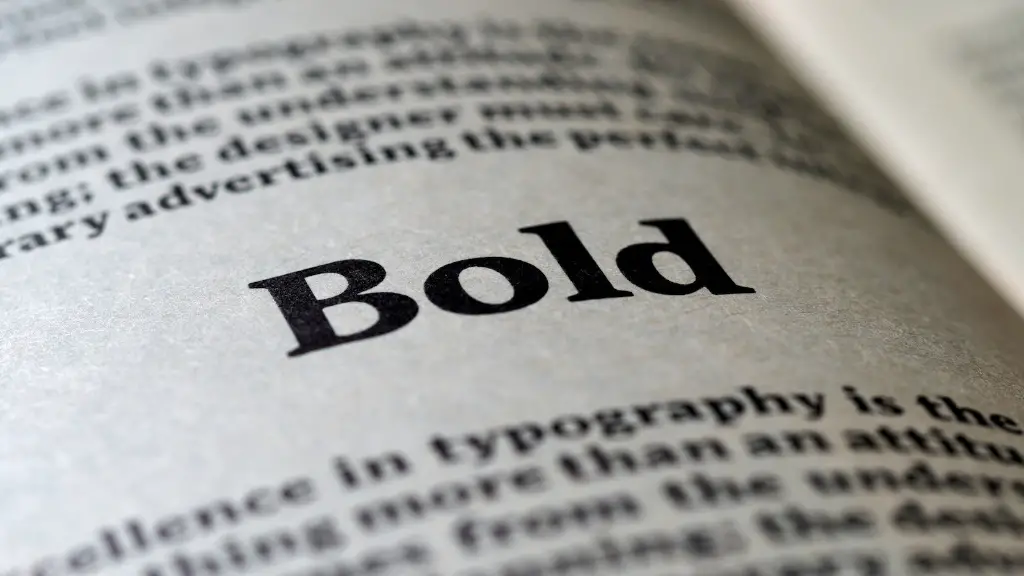Background
What does poetry mean? Poetry is an ancient artform, one that has been practiced by cultures around the world for centuries. It is a form of expression, a way to communicate ideas and feelings, and a method of capturing moments in time. It can be used to tell stories, to express emotions, or simply to evoke a certain mood. Poetry is often seen as a high art form, one that requires special skills to be successful. It is about language, about formulating words in a way that conveys meaning in both a visual and emotional way. Poetry is about exploring the boundaries of language, about discovering new ways to communicate feelings and thoughts that are difficult to verbalize.
Definitions
The definition of poetry is quite subjective and open to interpretation. Many people view poetry as an art form, while others view it simply as an entertaining way to communicate. There is no single definition of poetry, as it can take on different interpretations by different authors and readers. Generally speaking, poetry is a type of literature that uses language to express ideas and feelings in a powerful and often harmonic way. It can use metaphor, imagery, and other literary devices to convey its meaning in an evocative and insightful manner. Poetry can be simple or complex, but it always has the potential to profoundly affect its readers.
Purpose
The purpose of poetry is to provide a voice for the artist and to move the reader. Poetry can be used to express emotions, to tell stories, and to spark emotions in the reader. Poetry does not always need to be complex. Poems can also be simple and straightforward, designed to connect with the reader on a more basic level. Writing and reading poetry can be a great form of creativity and expression, as well as a way to connect and explore deeper emotions.
Freedom
Poetry gives its authors and readers a sense of freedom. When writing poetry, authors are not constrained by established rules and structures. They can explore ideas and feelings in a way that is unique and completely their own. Youthful or elderly, experienced or novice, anyone can enjoy the freedom of writing, creating, and experiencing poetry.
Connectivity
Poetry can be a powerful bridge of communication between the author and the reader. It can help the reader relate and empathize with the author’s perspective, as well as provoke and catalyze deep thought. Poetry can also be a tool of self-exploration and self-expression. It can help authors explore their emotions and thoughts on a deeper level, and can also be used to help others do the same. Poetry often conveys a message that is designed to resonate with readers on a more personal level.
Beauty
Poetry can be beautiful. Poetry often relies on the juxtaposition of language and imagery to evoke a certain emotion or feeling. It can also be used to create visual images that are both beautiful and powerful. Poetry can be a great way to explore ideas and express emotions in a beautiful and harmonious manner.
Power
Poetry has the power to affect the reader on a deep level. Poetry can be used to evoke emotions and provoke thought in the reader. It can also be used to convey important messages, such as social and political messages. Poetry has the power to inspire, challenge, and change the perspective of its readers.
History
Poetry has been around for centuries. Poets throughout the ages have used language, meter, and form to create pieces that have changed the world. Poetry can be used as a record of the times, capturing the feelings, emotions, and thoughts of its authors. It can also have a lasting impact, as poems can become timeless symbols that are remembered centuries after they were written.
Creativity
Poetry is a great outlet for creativity and exploration. Poets often experiment with different forms and techniques to create unique pieces of work. Through innovation and imagination, poets can create works that are both thought-provoking and evocative. Poetry can also be a great way to uncover ideas and perspectives that can be difficult to express in any other way.
Exploration
Poetry is a great way to explore emotions and feelings that are difficult to express in any other way. Through poetry, authors can examine their deepest thoughts and feelings and come to a greater understanding of themselves. Poetry can also be used as a way to explore different ideas and perspectives and discover new truths about the world around us.
Emotional Connection
Poetry can be a powerful way to create a sense of connection and understanding between the author and the reader. Through poetry, readers can gain a better understanding of the author’s perspective and can find ways to relate and sympathize with their emotion. Poetry can also be used to explore difficult concepts and foster a greater understanding of the world.
Resonance
The power of poetry lies in its ability to resonate with the reader. Poets can create pieces that resonate with readers on an emotional level and can make them feel understood and connected. Poetry can be used to create an emotional bond between the author and the reader and provide a sense of comfort and understanding.
Communication
Poetry can be used as a form of communication between the author and the reader. Through poetic language, authors can communicate complex thoughts and feelings in a way that is powerful and engaging. Poetry can also be used to connect on a deeper level, creating an emotional journey that readers can follow and experience.
Interpretation
The beauty of poetry lies in its ability to be interpreted in different ways. The language used in poetry is often open to interpretation, allowing readers to come to their own conclusions and interpretations of the poem. This creates a powerful connection between the author and reader, a powerful bond that can be used to explore truths and discover hidden meanings.
Legacy
Poetry has the potential to bring us together and create a common understanding. Poetry can be used to leave a lasting impression, a legacy that can be passed from generation to generation. Poems can become timeless landmarks, serving as a marker of our history and culture and a reminder of what is important to us.



